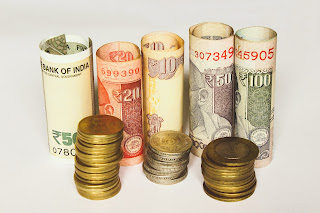What is Economics? An overview
It's a big question, but let's try to explain what Economics is and some of its general principles.
Essentially, Economics is a social science that studies how individuals, businesses, governments, and other organizations make choices about how to use limited resources, such as land, labor, raw materials, and capital, to produce, exchange, and distribute goods and services. These choices are influenced by the forces of supply and demand, as well as by government policies, such as taxes, subsidies, and regulations.
At its core, economics is concerned with the allocation of scarce resources in order to maximize the satisfaction of human wants and needs. In other words, it is about finding the most efficient and effective ways to produce and distribute goods and services, so that people can have the things they need and want, without wasting or depleting valuable resources.
Opportunity cost
One of the key concepts in economics is opportunity cost, which is the value of the next best alternative that is given up when a decision is made. For example, if you decide to spend an hour studying for a test instead of watching a movie, the opportunity cost of your decision is the enjoyment and relaxation you could have gained from watching the movie. Opportunity cost is an important concept because it helps individuals and organizations weigh the costs and benefits of different choices, and make decisions that are in their best interests.
Supply and demand
Another important concept in economics is supply and demand. Supply refers to the amount of a good or service that is available for purchase, while demand refers to the desire and ability of consumers to buy that good or service. When the supply of a good or service increases, the price of that good or service typically falls, because there is more of it available for people to buy. Conversely, when the demand for a good or service increases, the price of that good or service typically rises, because more people are willing and able to pay for it.
The interaction between supply and demand determines the market price of a good or service, and the market price, in turn, influences the decisions of both buyers and sellers. For example, if the price of a good or service is high, sellers will be motivated to produce more of it, in order to make a profit. On the other hand, if the price of a good or service is low, buyers will be motivated to purchase more of it, because it is more affordable.
Role of government
Another important aspect of economics is the role of government in the economy. Governments play a number of different roles in the economy, including setting and enforcing laws, providing public goods and services, regulating markets, and redistributing income through programs such as welfare and unemployment benefits. Governments can also use tools such as taxes, subsidies, and tariffs to influence the behavior of individuals, businesses, and organizations.
For example, a government might impose a tax on a particular good or service in order to discourage its consumption, or to raise revenue for public spending. Alternatively, a government might offer a subsidy to a particular industry in order to encourage the production of a good or service that is considered to be important for the economy or for society.
In summary
Overall, economics is a complex and multifaceted subject that studies how people, businesses, and governments make decisions about the production, distribution, and consumption of goods and services. It is concerned with the allocation of scarce resources in order to maximize the satisfaction of human wants and needs, and with the role of government in the economy.




Comments
Post a Comment